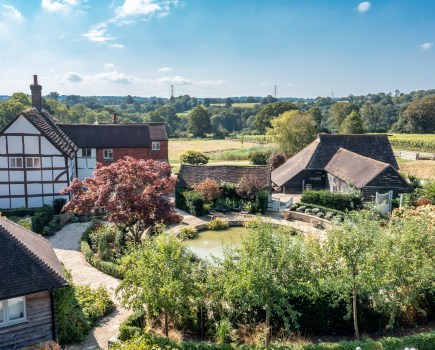For an existing vineyard looking to expand its growing operations, especially here in the South East, the options can initially appear limited. Having acted for Champagne Tattinger and its UK agency, Hatch Mansfield, to find a suitable site in Kent, we spent over a year searching on their behalf before introducing their new site at Chilham. Domaine Evremond, which was planted in 2017, promises to introduce 300,000 bottles per year of premium English sparkling wine.
We are increasingly being approached by farmers and landowners looking to diversify their business into vines, either investing themselves, or getting approached directly by vineyards with a view to contributing to the planting costs.
What then is the best way to strike a deal over land so that both the vineyard and landowner achieve their objectives?
- Agree heads of terms: If approaching a landowner, or if you are a vineyard approached by a grower, ensure you commit the agreement to writing before commencing with any further activity, possibly with a confidentiality clause.
- Agree the term: A vineyard’s life can extend for 50 years, so it is more than reasonable to agree a term of say 20 years, but 10-15 is usually recommended.
- Size of investment: As there is considerable investment at the outset, consider planting a smaller site, 5-10 acres, to see if this is something that will work, but allowing you the opportunity to expand if successful.
- Payment terms: Payment terms vary significantly and there are a number of points to consider when on a Farm Business Tenancy. While a fixed price for the sale of the crop for the entire term might seem tempting, don’t forget that the price will fluctuate year on year.
- Take advice: We will see more vines planted here in the South East over the next 5-10 years, so making sure you are aiming to grow the best quality will ultimately increase the value of your investment and business, and a landowner or farmer will benefit from the brand values of the vineyard they supply going forwards.
- Other options for expansion are available. An open market sale of vineyard land is increasingly unusual, and many deals are done “off market” simply because of the high supply and demand for the right land. That doesn’t mean that opportunities don’t come up and, if marketed correctly, they will typically generate considerable interest. Work with a viticulturalist or land agent with experience in the sector so that the true value of the land can be achieved, and its suitability for growing understood.
- Finally, if like Tattinger you know what you want, but need help in finding it, then don’t be afraid to approach us directly to search for opportunities on your behalf.



